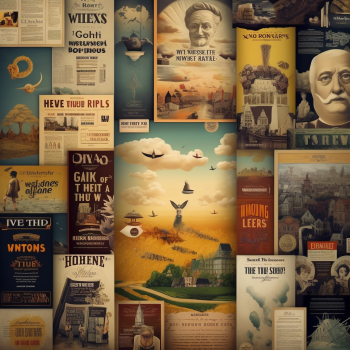Rx_for_Survival:_A_Global_Health_Challenge《生存的处方:_全球卫生挑战》

简述
封面

影片信息
官方网站
http://www.pbs.org/wgbh/rxforsurvival/
影片原始规格:
- 中文片名 :生存的处方: 全球卫生挑战
- 中文系列名:
- 英文片名 :Rx for Survival: A Global Health Challenge
- 英文系列名:
- 电视台 :PBS
- 地区 :美国
- 语言 :英语
- 时长 :345 min
- 版本 :DVD
- 发行时间 :2005
影片内容介绍
剧情简介
This is a first-rate documentary series that manages to be simultaneously frightening, amazing, depressing AND optimistic. While watching this I kept feeling angry that we don’t see stories on the nightly news about what people in developing countries have to endure in terms of illness. With the myriad of diseases that surround them, their lives seem like a game of Russian Roulette with five bullets in the chamber. But what reeeeally gets me angry is the fact that the heroes depicted in this series - men and women who have dedicated their lives to helping and healing these people - are not getting THEIR stories told in the nightly news. They are an incredible inspiration! We’re always complaining about how depressing the news is and how hopeless everything is. If people could see material like what is shown in this series daily, they would feel great hope because all of these problems are easily solvable with financial support from individuals and governments. It would cost only a fraction of our budget- less than 2% - to eradicate most of these illnesses, and as this documentary clearly shows, these viruses are now spreading to every country in the world including the USA. We can feel great hope that there are so many good people who are doing good things in the world. It’s not all serial killers and rapists and terrorists and gangs and corrupt politicians out there. Introduce yourself to the REAL world! Rent all three discs and then buy copies of the DVD for your friends. And read Jeffrey Sachs’ book “The End of Poverty”. It CAN be a reality!
分集介绍
【健康卫士】Disease Warriors
Before there was an understanding of infectious disease, few weapons were available to fight it. Disease Warriors chronicles the groundbreaking work of early researchers, such as the famed scientist Louis Pasteur, who unmasked germs as the source of illness. Pasteur went on to develop a rabies vaccine — a great scientific triumph. Today, vaccines have made huge strides against epidemics, conquering smallpox and bringing the global eradication of polio within reach. But the world still faces major challenges in getting basic vaccines to those who still need them, and in creating new ones to combat modern nemeses, like AIDS.
【超级细菌的泛滥】Rise of the Superbugs
It’s difficult to imagine a world without medicines — and yet, before the twentieth century there weren’t any. The discovery of the very first antibiotic, penicillin, and the subsequent development of more “wonder drugs” transformed the face of modern medicine. Rise of the Superbugs chronicles these historic successes, as well as the growing threat posed by new strains of germs, such as tuberculosis and staph, that are resistant to our best antibiotics. Are our strongest medicines becoming obsolete, and can we develop new drugs in time to replace them?
【药品的分发】Delivering the Goods
At the dawn of the 21st century, we can prevent, treat or cure most of the deadliest diseases known to humankind — and yet millions die needlessly every year because the benefits of modern medicine and public health fail to reach them. What are the obstacles to providing care to populations in need? From the villages of the Gambia to the cities and towns of Thailand, from the sun- scorched refugee camps of Chad to the teeming streets of Bangladesh — this episode chronicles innovative health programs and charismatic leaders who, against all odds, are Delivering the Goods to millions of individuals — and inspiring a new vision for the future of global health.
【死亡传播者】Deadly Messengers
Since the plague killed millions of Europeans in the Middle Ages, vector-borne diseases — those that rely on insects and animals to spread infectious agents — have posed a serious threat to public health. Today, the most dangerous vector on earth is the mosquito. From malaria to yellow fever to West Nile virus, mosquito-borne diseases continue to threaten the health of millions around the world. Deadly Messengers recounts the stories of heroic scientists and health workers who battled against the mosquito, and examines current efforts to control dangerous and spreading vector-borne diseases.
【回到基本公共卫生】Back to the Basics
Ever since sailors noticed that scurvy could be prevented with citrus fruits, it has been clear that illness could be caused by a lack of certain nutrients. While nutrient-enriched products have reduced diseases caused by vitamin deficiency in the developed countries, the problem continues to plague the developing world. And many in poorer countries suffer from the twin problems of poor nutrition and unsafe water, which create a disease burden that is almost unbearable. Back to the Basics explores the connection between health and the essential requirements that so many people take for granted. It also examines how an overabundance of nutrition — in the form of over-consumption — is causing an epidemic of obesity that is spreading across the globe.
【我们有多安全】How Safe are We–
During the past 100 years, life expectancy more than doubled in developed countries. In the last few decades, however, thirty new infectious diseases have emerged and one of them — AIDS — is becoming perhaps the most devastating epidemic in history. New diseases travel the globe with unprecedented rapidity, and older killers that once seemed controllable are roaring back with a vengeance. How Safe Are We? examines the most critical threats we face today — including avian flu — and the pressing need to strengthen global public health systems.
截图

参考信息
相关的纪录片
暂无
相关领域
| 内容 应用科学类 | 医药 |
|---|---|
| 社会科学类 | 社会 |
| — | — |
| 公共政策 |
网路消息
暂无
Category:片名 Category:PBS Category:2005 Category:4. 应用科学类 Category:4.1 医药 Category:5. 社会科学类 Category:5.1 社会 Category:5.14 舆论/议题 Category:5.2 政治 Category:8.0008 公共政策 Category:缺翻译